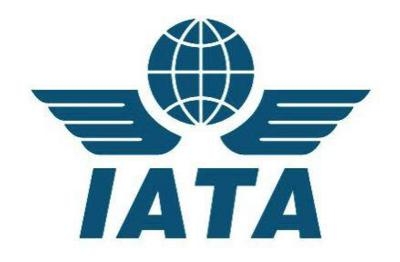Accounts For 1.7 Percent Of That Nation's Gross Domestic Product
The International Air Transport Association (IATA) announced new data showing that aviation and aviation-induced tourism contribute $9.6 billion to Argentina's economy and support 300,000 jobs, equivalent to 1.7% of the country's GDP. The findings are among the highlights from "The Importance of Air Transport in Argentina'" study conducted by Oxford Economics on behalf of IATA.

"Argentina's economy and people all benefit from the many contributions of aviation. Air transport supports international trade and commerce, foreign direct investment and tourism. However, Argentina could be reaping far greater benefits from aviation if the right airport and air navigation infrastructure were in place and the country's taxes and charges were competitive with other countries in the region," said Peter Cerda, IATA's Regional Vice President for the Americas, who is in Buenos Aires at the ALTA Airline Leaders Forum for the release of the study.
According to the study, the quality of Argentina's infrastructure – both on the ground and in the air – is hindering the development of air transport. In spite of recent efforts to improve the country's air traffic management system much of it is still antiquated and inefficient due to years of underinvestment. This is provoking unnecessarily long flight times, additional costs for travelers and airlines, and unneeded CO2 emissions. On the ground, some of Argentina's key airports have capacity constraints. In order to address this passenger demand the priority for airport investment should be at the country's main airports.
Argentina also needs to improve the passenger experience at the country's key airports such as Ministro Pistarini International Airport in Buenos Aires. Passenger processing times are unnecessarily long but could be improved by deploying the right technology and ensuring adequate airport staff levels are maintained at key choke points such as passport control.
Argentina ranks 130th out of 136 countries for ticket taxes and tourism charges according to the World Economic Forum, behind other Latin American countries such as Chile, Brazil, Mexico, Panama, Dominican Republic, Venezuela and Ecuador. This contributes to a high cost structure for Argentina's aviation industry which weighs on demand and undermines the ability of the country to compete for air passengers, both those travelling to and from Argentina but also those who might connect in Buenos Aires instead of Sao Paulo or Santiago.
"Argentina has all of the components to become a regional aviation powerhouse. To start, its geography is vast, making internal air links vital. And the country has tremendous tourism potential with vibrant cities and cultural attractions, beautiful national parks and a growing economy. Yet air transport in the country remains underdeveloped. Argentina needs to be strategic about aviation policy and ensure the right air transport infrastructure and cost structure are in place to allow aviation room to grow and deliver the many economic benefits that come from robust air connectivity," said Cerda.
(Source: IATA news release)
 Classic Aero-TV: In Praise of Alabamas Patriot Aircraft USA
Classic Aero-TV: In Praise of Alabamas Patriot Aircraft USA NTSB Final Report: Cirrus Design Corp SR22
NTSB Final Report: Cirrus Design Corp SR22 ANN's Daily Aero-Term (12.21.25): Dead Reckoning
ANN's Daily Aero-Term (12.21.25): Dead Reckoning ANN's Daily Aero-Linx (12.21.25)
ANN's Daily Aero-Linx (12.21.25) Aero-News: Quote of the Day (12.21.25)
Aero-News: Quote of the Day (12.21.25)



